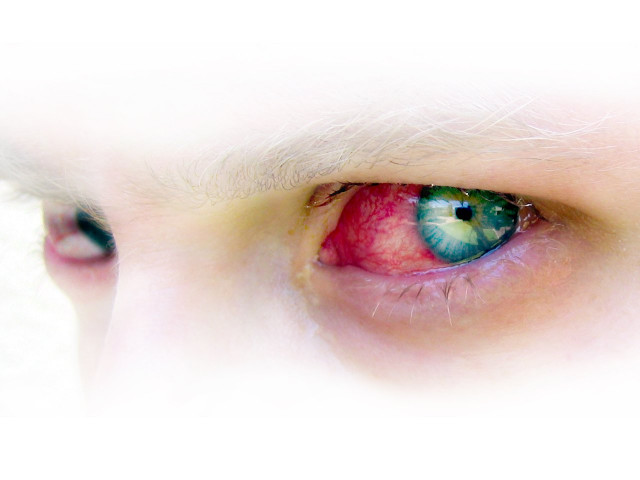Un-necessary blindness: Only 2% get cornea transplants at Mayo
Doctors point out need to raise awareness about organ donation.

Cornea transplants were carried out for only 10 of the 500 people registered for the procedure at the Mayo Hospital this year.
Illustrating the severe shortage of cornea donors in Pakistan, Dr Fatima, who is in charge of the cornea bank at King Edward Medical University’s College of Ophthalmology and Allied Vision Sciences (COAVS) told The Express Tribune that only four people were currently registered with the cornea bank for donating their corneas after death.
She said so far she had not received a single donation from Pakistan. She said a team of the cornea bank was turned away recently by the family of a registered donor they had gone to collect his cornea after his death. She said the man had signed all necessary documents signalling his consent to donating his corneas after his death.
She said there was a need to raise awareness about the issue. “People are very reluctant to donate their organs,” she said. She said even the staff at the cornea bank was not convinced about organ donation. “At times, they refuse to accompany the team when we have to go and collect someone’s cornea,” she said.
She said there was a severe shortage of corneas. “The only corneas available for transplants come from Sri Lanka or Europe,” she said. She added that imported corneas were more expensive and that increased the cost of the procedure.
“People in Pakistan will not be willing to donate their corneas or any other organ as long as the clerics keep telling them that it is not allowed,” KEMU principal Dr Asad Aslam said. Dr Aslam, an ophthalmologist, said no laws, ordinances or seminars would be helpful if the clerics did not support the cause.
Dr Aslam said even in cases where people have registered themselves for donation, their families do not allow the hospital team to collect their cornea once they’re dead.
“Islam does not prohibit organ donation. There are several misconceptions about Islamic teachings in this regard,” said scholar Ibtissam Illahi Zaheer. He said any organ of a dead person can be donated to a living person. However, he said, it isn’t recommended for a living person to donate his organs to someone who may still survive without the donation.
Chaudhry Abdul Aziz, a farmer, got his vision back after eight years following a cornea transplant at Mayo Hospital. He said he had lost all hope of getting his eyesight back before he was recommended to the Mayo Hospital for a transplant. He said the procedure was affordable.
“I am the only bread earner for my family. Ever since I lost my eyesight my family had been dependent on neighbours and relatives. I have again started farming now and will no longer need anyone’s support,” he said.
Published in The Express Tribune, June 27th, 2011.



















COMMENTS
Comments are moderated and generally will be posted if they are on-topic and not abusive.
For more information, please see our Comments FAQ